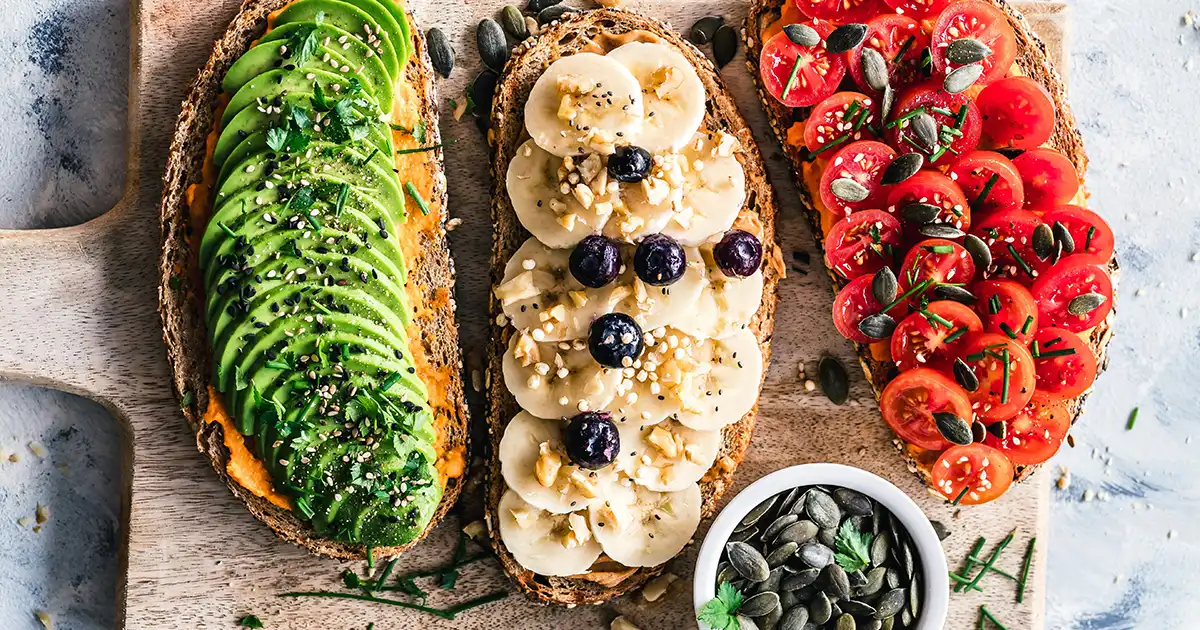
If you are considering holding off on meats for a while, you may not know whether a vegetarian or vegan diet is best for your lifestyle. Both vegan and vegetarian diets have their own considerations and benefits.
With this in mind, let’s explore the differences to help you determine whether a vegetarian or vegan diet works for you. We will cover the benefits of each as well as food group types.
Vegan and Vegetarian Diets: Understanding The Basics
The degree to which each diet excludes animal products is the primary distinction between vegan and vegetarian lifestyles. Vegans take a more stringent approach by cutting all animal products from their diet. This includes not only meat, poultry, and fish but also extends to dairy, eggs, and other animal-derived substances such as honey.
On the other hand, eliminate meat and poultry from their diets, but often include eggs, fish, and dairy products. As such, it allows for a broader variety of nutritional sources from animal-derived ingredients. And you won’t have to consume the flesh of animals directly.
Additionally, the vegan philosophy extends beyond mere diet into avoiding all aspects of animal exploitation or cruelty. Therefore, it’s vital to refrain from animal products in accessories, toiletries, household items, and clothing.
In short, the choice between vegetarianism and veganism involves a combination of ethical consideration, dietary preferences, and health goals.
The Benefits of Plant-Based Diets
There are many benefits from embracing a plant-based diet. Both vegan and vegetarian diets are rooted in plant-based nutrition. Both of these diets can have profound impacts on your health.
People who follow vegetarian or vegan diets generally consume a wide variety of fruits, vegetables, whole grains, nuts, and seeds. This abundance of plant foods supplies the body with an extensive range of fiber, vitamins, minerals, and antioxidants.
Such a diet is instrumental in boosting the body’s defense mechanisms against chronic conditions. And playing a significant role in the prevention of heart disease, diabetes, and various cancers.
The natural composition of plant-based diets is inherently low in saturated fat and devoid of cholesterol. Therefore, these diets have been proven to enhance cardiovascular health. Moreover, the high fiber content in fruits, vegetables, and whole grains can facilitate better digestion and weight management.
So, transitioning to a diet centered around plant-based nutrition can be a transformative step toward achieving and sustaining optimal health.
Challenges To Consider
Embarking on vegan and vegetarian diets offer a myriad of health benefits. However, it can also present unique challenges that require careful planning and consideration.
Vegan Diets: What to Know
For individuals adopting a vegan lifestyle, the complete exclusion of animal products heightens the risk of certain nutritional deficiencies. If you intend to embark on a vegan diet ensure you are vigilant about your intake of the following:
- Calcium
- Iron
- Omega-3 fatty acids
- B12
While the above can be found in plant-based options, they are less bioavailable in plant-based sources than in animal-based products. Therefore, it is important you incorporate a variety of plant-based foods and sometimes even consider adding supplements for any area you feel you are lacking.
Vegetarian Diets: What to Know
Vegetarians generally have a wider range of food options that include dairy and eggs. But they also face potential nutritional gaps. A sufficient intake of high-quality protein is important. Some great options are:
- Nuts
- Legumes
- Grains
Another common concern amongst vegetarians is iron absorption. This can be optimized by pairing iron-rich plant foods with vitamin C sources to enhance bioavailability.
Go Vegetarian or Vegan with Jane’s Cafe
Both vegan and vegetarian diets necessitate a proactive approach to meal planning to ensure a balanced and nutrient-dense intake. To sample our plant-based options, come visit Jane’s Cafe in Mission Valley for lunch. Our menu has a wide array of options that you’ll enjoy!
You may also enjoy reading: Mexican Food Classics: Albondigas Soup











Leave a Reply